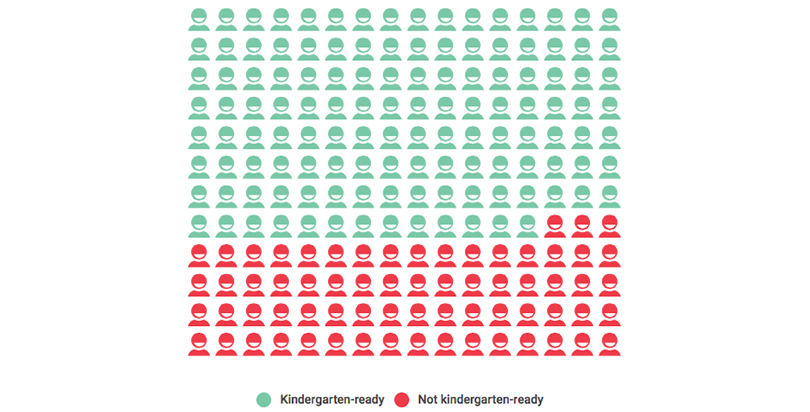Two in Three Premature Babies Ready for School on Time — and 4 More Key Findings From New National Study

Premature babies often face a host of health and developmental complications while still in the maternity ward, from low birth weight to hypothermia and heart failure. But many parents are also terrified of the long-term intellectual effects of premature birth: Will their kids be able to start school on time? Once enrolled, with they lag behind their classmates?
A new paper published in this month’s issue of JAMA Pediatrics could give those parents cause for hope. In a study of more than 1.3 million babies born between 1992 and 2002, researchers from Northwestern University’s Institute for Policy Research and the University of Florida found that two-thirds of babies born “extremely premature” — after less than 28 weeks in the womb — were ready for kindergarten on time. (A full-term child is born at 40 weeks. Babies born 37 weeks or earlier are considered preterm or premature.)
The study, which combined huge administrative data sets from Florida’s Bureau of Vital Statistics and Department of Education, measured results across four separate standards: kindergarten readiness, test scores from the Florida Comprehensive Assessment Test, gifted status, and “low performance” on the FCAT (scoring below the fifth percentile).
Four other notable findings:
-
Longer gestational period is generally correlated with greater kindergarten readiness. Eighty-five percent of full-term babies begin kindergarten on time, while 65 percent of extremely premature babies do so.
-
Children born at 23 or 24 weeks performed meaningfully worse than their full-term classmates on the FCAT exam, while those born at 29 to 30 weeks scored only slightly worse. Children born just a few weeks premature received scores that were virtually equivalent to those of full-term children.
-
The probability of gifted status also increased with gestational age, with 1.8 percent of extremely premature babies receiving that designation, compared with almost 10 percent of those born at full term.
-
Finally, while just 5.8 percent of full-term Florida kids received “low performer” scores on the FCAT, a full one-third of extremely premature kids did.
Although the research confirmed that premature birth is correlated with negative academic outcomes, the authors believed that their findings gave reasons for optimism.
“Although preterm birth — even near the traditional limits of viability — confers risks of long-term developmental impairments, the outcomes may not be uniformly deleterious,” they write.
In a press release, co-author and noted economist David Figlio struck a similarly upbeat chord. “I believe that the glass is more than half-full. Most infants born at 23 to 24 weeks still demonstrate a high degree of cognitive functioning at the start of kindergarten and throughout school.”
Get stories like these delivered straight to your inbox. Sign up for The 74 Newsletter

;)
